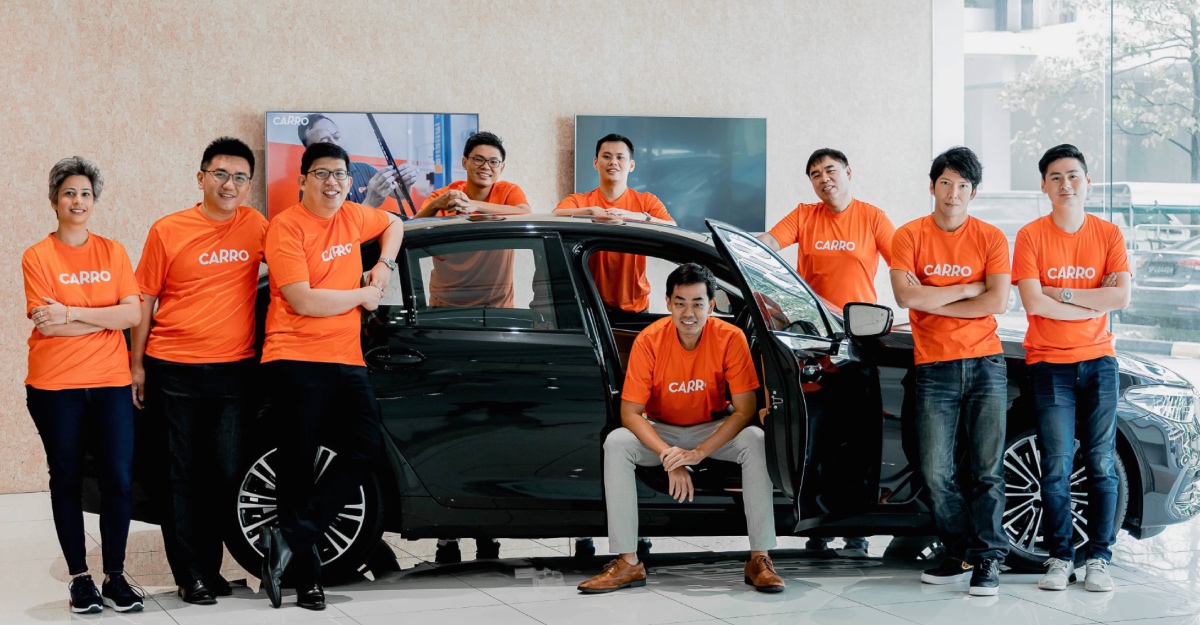The discussion of machines replacing humans in the labor force has been a long drawn debate in capitalism since the days of the Industrial Revolution in the early 19th century. Not until the 70s during the development of the assembly line and the introduction of mass production were the effects of job loss due to automation felt most strongly.
This phenomena continues till this day and age, and according to a recent paper from Oxford College, your job could be next in line to be replaced by computers.

The working paper was released in Sep 2013, with an oracle-like title, “The Future of Employment: How Susceptible are Jobs to Computerisation?” The study revealed that out of 702 jobs surveyed, a good 47% of them are within the high-risk area of being assigned to computers within the next one to two decades.
To find out if your vocation is at risk of being taken over by computers, there’s an online interactive tool featured on TODAY online that calculates the probability of your job role being automated.

The Results
As advanced as they are, computers have limitations. Some soft skills require sentience, something that machines lack. Hence, it is safe to say that for now, jobs requiring perception, manipulation, creative and social intelligence are least likely to be computerised.
If your job involves consulting other people, negotiating agreements, resolving problems and coordinating activities require a great deal of social intelligence, you’re probably still safe as computers are unlikely to be able to manage that level of thinking yet.
Most management, business, and finance occupations, which are intensive in generalist tasks requires social intelligence, are largely confined to the low risk category, as detailed in the study. The same is true of most occupations in education, healthcare, as well as arts and media.

What to expect in the next one to two decades
The researchers believe this computerization takeover will happen in two stages. The first wave is when people in especially vulnerable fields like transportation / logistics, production labor, and administrative support and jobs in services, sales, and construction may also be lost. This would probably occur in the first 10 years.

Thereafter, the rate of replacement will slow down due to bottlenecks in harder-to-automate fields such as engineering. This technological plateau will be followed by a second wave of computerization, dependent upon the development of artificial intelligence.
This could next put jobs in management, science and engineering, and the arts at risk. It’s highly possible that the second wave could ensure within the next 5 to 10 years following the first wave. This all sounds like the background story to the popular dystopia series, Terminator.
The researchers also note that the rate of computerization depends on several other factors, including regulation of new technology and access to cheap labor. So don’t hit the panic button just yet.
Big data analytics, automation’s biggest buzz word
The availability of big data was identified as a major trend that’s given engineers huge amounts of complex data to work with, which has made it possible for computers to deal with problems that, until recently, only people could handle.
For instance, pattern recognition software applied to patient records, clinical trials, medical reports and journals makes it possible for computers to be used as diagnostic tools, comparing data to arrive at the best possible treatment plan.

Fraud detection, pre-trial research in legal cases, stock-trading and patient-monitoring are now handled by software after the arrival of big data. “Such algorithmic improvements over human judgment are likely to become increasingly common,” the study says.
The following clip takes the Oxford paper and makes it easily digestible and somewhat terrifying. Forget the zombie apocalypse, get ready for the robot apocalypse.
Education May Save Us All
This change in the way we collect data and make sense of user metrics, affected by the arrival of big data analytics competency, effectively negates the beliefs we held towards getting an education and the correlation of that college degree equating to job security from automation.
In the past, our perception was that only low-skilled jobs were being given to machines and getting an education, getting trained with specialist skills was deemed the golden route to reliable and gainful employment.

This doesn’t mean that education should be seen as unnecessary. That is in no way true. As revealed by the Oxford study, we will instead need to work on our creative and social skills instead of purely farming our intellect or settling down to a job that requires repetitive mundane tasks.
Soft skills that allow us to creatively develop artifacts, solve problems, manage people and the ability to participate in social interactions with little friction that arrive at ideal agreements, are the skills we need to acquire instead of solely depending on paper qualifications alone for job security in this time and age.
So if you’re worried that computers take over your job, make it your job to make sure that doesn’t happen.








